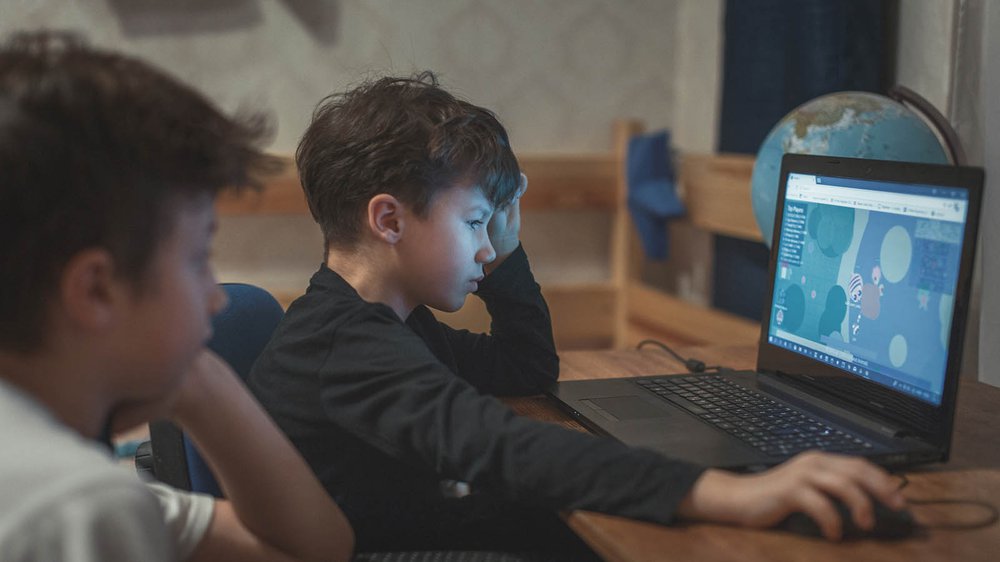For years we have debated the role of technology in education. Given the pandemic, we are inarguably here, embracing a new reality of K-12 education. Districts have been scrambling to provide devices for their students. What was once controversial because of the concerns of machines being lost, damaged, or, even worse, hocked, is now a necessity if learning is to continue in an organized fashion. But what if education does not have to be organized? In other words, what if education is monitored and supported, but not controlled?
Before we can move further, we need to acknowledge our shortcomings…our failures. For at least the past twenty years, our global education systems have been woefully behind the times, churning out workers for jobs that either don’t exist because of being replaced by AI or jobs that require minimal thought. What if we raise the bar as a society and start believing the best about our students and ourselves?
There have been countless research studies and articles about how to engage kids in school. We have sounded the alarm about the misbehavior of boys within the institution. But what if we are the problem, not them? What if our students are trying to tell us that they are bored because what we are teaching doesn’t apply to their real world? What if they are not meant to be part of an “institution”?
As a mother of two boys, ages 22 and 14, here is what I have learned from them. They want to be assured that their investment of time is worthwhile. Why do a worksheet for the teacher to give it a glance then throw it in the trash? They will spend hours playing video games, working with teammates and solving problems. In many ways, even though their gaming experience occurs in an online world, what they are learning is more applicable to real life than what happens within the confines of a classroom. They are practicing their problem-solving and communication skills, making in-the-moment decisions in order to build and stay alive. Isn’t that what we as a global society are doing in the midst of this crisis?
During this quarantine, we have the privilege of re-imagining what education is. The Latin roots of the word education are educare, which means to train and to mold, and educere, which means to draw out. Standardized testing does not train, mold, or draw out children’s innate talents and giftings. As my friend Richard Gerver shared in an interview conversation we had recently, “We must consider the end result. Who do we want our children to become?” The answer to that question will guide us as we redesign school, beginning with the end in mind. I believe what we can all agree on is that we want our children to be courageous, honest, kind, generous, cooperative, persevering, dependable…we want them to be like the heroes we have seen emerge as shining lights during this crisis…our healthcare workers, first responders, and caring neighbors.
In my opinion, one of the greatest tragedies of this time would be to go back to school as it was before the pandemic. We have the opportunity to connect students with others around the world according to areas of interest and gifting. Imagine if student learning was happening in much the same way that scientists and researchers are collaboratively working to find a solution for the pandemic. Let us give students a problem. Match them with others who have similar passions. Mentor them with experts in the field. Watch them reshape the world.
It is time to release our control. We never had it anyway. Instead, let us guide and direct our students by engaging in conversations and tackling real-world problems…together.
Here are some high-level thoughts for redesigning education to focus on student-driven blended learning, which includes EdTech and face-to-face instruction:
K-2: Basic Skills – literacy, mathematics, social-emotional learning (SEL), typing, and arts
Grades 3-5: Intermediate Skills – literacy, mathematics, SEL, science, arts, social studies, and coding
Grades 6-8: Advanced Skills – literacy, mathematics, SEL, science, arts, social studies, coding all applied to real world problem-solving
Grades 9-12: Mentorship – real world placement with support from advisors and mentors in fields of interest with in-depth drill down into specific subject areas, SEL, and arts
About the author

Tamara Fyke is an educator and creative entrepreneur with a passion for kids, families, and urban communities. She is the creator, author, and brand manager for Love In A Big World, which equips K-8 educators with a social-emotional learning (SEL) curriculum that is both research-based and practical, and also provides the supporting resources necessary to empower students to be socially competent, emotionally healthy problem-solvers who discover and maintain a sense of purpose and make a positive difference in the world.
Tamara is editor of Building People: Social & Emotional Learning for Kids, Schools & Communities, a book that brings 12 wide-ranging perspectives on SEL to educators, parents, and leaders. Follow her on Twitter .











